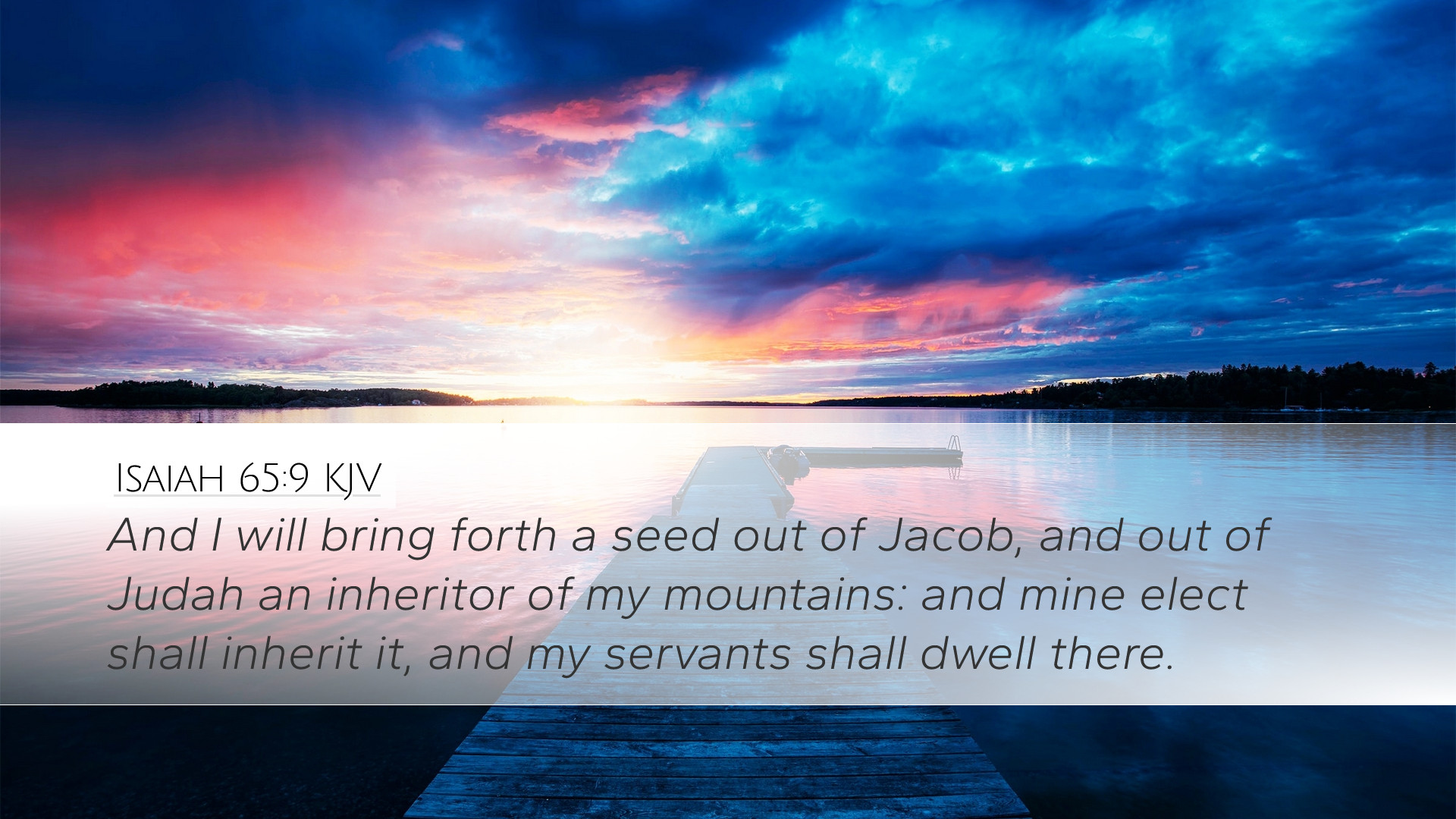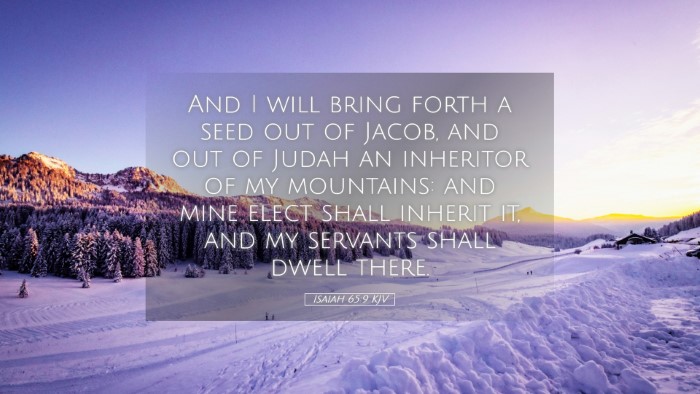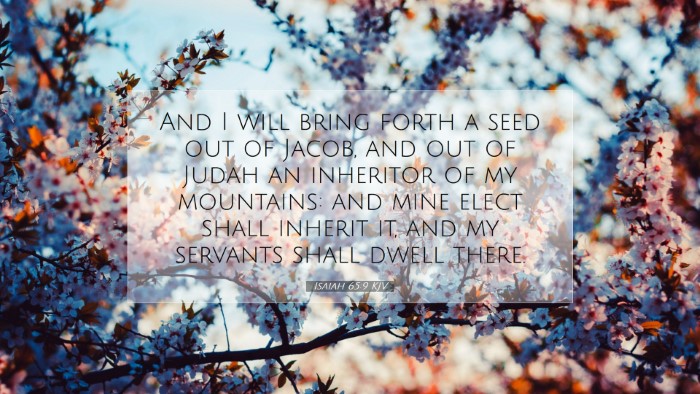Commentary on Isaiah 65:9
Verse: Isaiah 65:9 - "And I will bring forth a seed out of Jacob, and out of Judah an inheritor of my mountains: and mine elect shall inherit it, and my servants shall dwell there."
Introduction
The verse from Isaiah 65:9 encapsulates God’s promise to Israel, affirming His faithfulness in bringing forth a righteous remnant who will inherit the blessings of the earth. This passage not only highlights the concept of inheritance but also brings to light the themes of election, divine favor, and the restoration of God’s people.
Contextual Background
In understanding Isaiah 65, we find ourselves in a prophetic discourse that confronts both the challenges and the promises faced by the people of Israel. The preceding chapters include themes of judgment and restoration, where God plans to establish righteousness and faithfulness among His people.
Insights from Commentaries
Matthew Henry Commentary
Matthew Henry emphasizes the faithfulness of God in preserving a remnant of Jacob—a "seed" that will inherit the land God swore to their forefathers. He points out that despite the widespread rebellion of Israel, God's covenant promise holds firm. Henry notes:
- Divine Election: The term "my elect" indicates those chosen by God to fulfill His purpose and establish His kingdom on earth. These individuals are not merely a political or national entity but are spiritually designated as inheritors of divine promises.
- Context of Inheritance: The imagery of mountains represents stability, strength, and the riches of divine favor. In the biblical context, inheriting the mountains signifies a return to communion with God marked by peace and abundance.
Henry's perspective is rooted in the assurance that God faithfully tends to His covenant promises, showcasing His unwavering commitment to His people.
Albert Barnes Commentary
Albert Barnes offers a interpretative view focusing on the implications of "a seed out of Jacob." He suggests that this seed refers not only to individuals of Jewish descent but extends to all believers who are grafted into the promises through faith. Key insights from Barnes include:
- Universal Application: Barnes highlights that God's promise of inheritance is inclusive, extending beyond ethnic boundaries to encompass all who have faith in Christ. This reflects the New Testament revelation that believers are heirs according to the promise.
- The Nature of the Inheritance: The inheritance speaks to the spiritual and eternal blessings of the Kingdom of God. This aligns with the New Testament understanding that believers are promised a place in the heavenly realm, echoing themes of restoration and peace.
Barnes emphasizes God's eternal purpose, asserting that despite Israel's failures, His plan remains intact and is ultimately fulfilled in Christ.
Adam Clarke Commentary
Adam Clarke provides additional historical and theological insights into this verse. He interprets "my mountains" symbolically, arguing that the mountains represent God's presence among His people. Highlights from Clarke's commentary include:
- Theological Significance: Clarke asserts that the "mountains" symbolize the different aspects of God's kingdom where His rule and reign are established. The mention of Judah emphasizes the lineage of David, from which the Messiah would arise, underscoring God's salvation plan.
- Servants and Dwelling: The promise that "my servants shall dwell there" speaks to an intimate relationship between God and His people. To dwell signifies security and favor, indicating that God's servants will experience His constant presence and care.
Clarke’s analysis reveals the depth of God’s relationship with His people and the significance of their identity as heirs of God’s kingdom.
Thematic Exploration
This passage invites us to explore several important theological themes:
- The Faithfulness of God: Regardless of human unfaithfulness, God remains steadfast to His promises. The remnant of Jacob serves as a testimony to God's unfailing love and commitment.
- Inheritance and Election: The notions of election and inheritance are central to understanding God's sovereign choice. This provides comfort and assurance of belonging to a larger divine narrative.
- Hope in Restoration: Isaiah 65:9 presents a hopeful vision for the future. It assures that amidst earthly turmoil, God is orchestrating a plan for renewal and restoration, culminating in a new creation where His people will thrive.
Conclusion
In conclusion, Isaiah 65:9 resonates profoundly within the broader biblical narrative of redemption, inviting believers to reflect on their identity as part of God's chosen people. The insights from various public domain commentaries enrich our understanding, allowing pastors, scholars, and students to appreciate the depths of God's promises. As we meditate on this verse, let us be encouraged by the certainty of God's faithfulness and the hope that accompanies His elect—a hope fulfilled in the life-giving presence of Christ.


